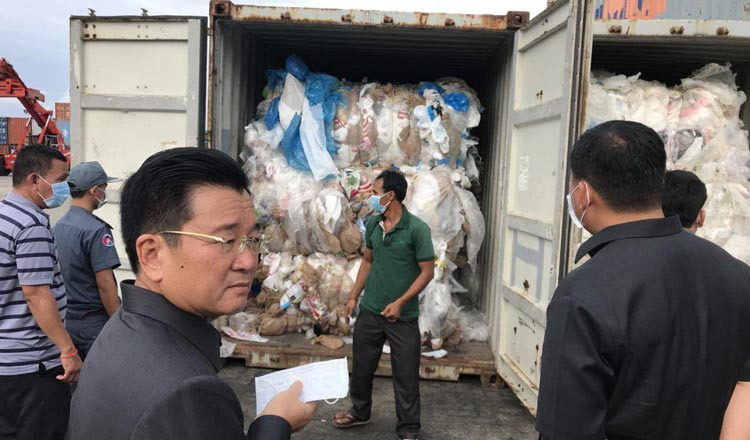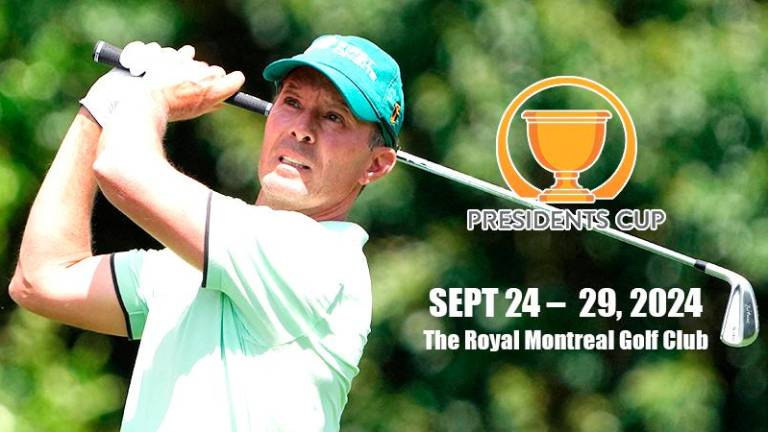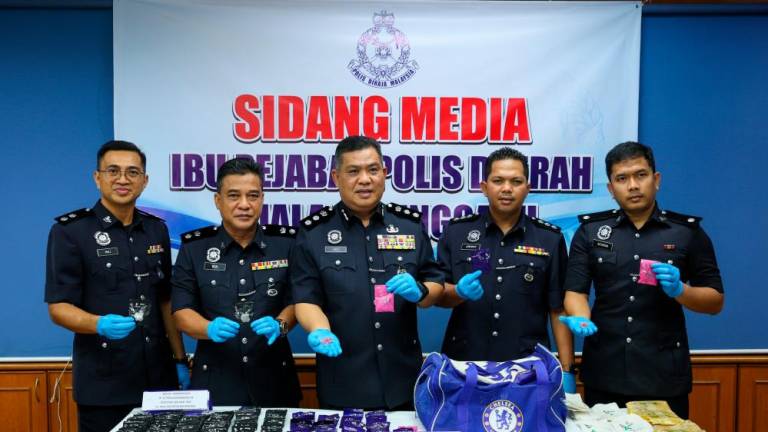PHNOM PENH: Cambodia’s Environment Ministry yesterday said a total of 83 containers filled with unwanted rubbish at Sihanoukville Autonomous Port will be sent back to their original source.
Its spokesman Neth Pheaktra said the containers full of mostly plastic were found yesterday afternoon during a crackdown on banned waste by a number of national and sub-national officials.
The crackdown was led by Kun Nhim, director-general of the General Department of Customs and Excise; Environment Minister Say Samal; Preah Sihanouk provincial Governor Kuoch Chamroeun and Lou Kim Chhun, director-general of the port.
Kun Nhim, director-general of the General Department of Customs and Excise, and Samal said the containers will be returned to their original source, but he did not disclose where the containers came from.
“We are investigating,” he said. “I cannot say where the containers came from, but in principle they must be sent back.”
“We will also fine those who imported them. They must be punished in accordance with the law.”
The discovery of the 83 containers followed a statement by Prime Minister Hun Sen announcing a ban on rubbish imports last week.
“Never allow such imports, I recall that people in the past approached us and suggested that Cambodia burn waste to produce electricity. They wanted to import waste from overseas.” Hun Sen said.
“I am warning you all here to never allow such an investment in Cambodia because such people will look to import waste from overseas,” he said. “They will say they want to use Cambodia’s waste as their initial stepping stone.”
“But their goal is to import waste from overseas and dump it in Cambodia. So, we will not allow such investments. Cambodia is not a dumpsite for industrial waste.”
Nhim said port officials came across the containers during a random check.
“We scanned for imported goods – just like every day – we have about 700 containers on average,” he said. “So we run random checks and we find banned imports.”
Kheang Phearum, spokesman for the Provincial Hall, yesterday said the 83 containers will remain at port pending a government decision.
“All 83 containers will remain at the port and the source of the waste will soon be announced after the investigation is done,” Phearum said, adding that the first time the government ordered the return of waste was in 1998. “This is the second time our port has experienced the import of banned rubbish.”
In 1998, dozens of dock workers and villagers complained of being sick due to the shipment of some 3,000 tonnes of decades old toxic sludge that contained mercury. It was shipped by Taiwan’s Formosa Chemicals to the Kingdom.
According to the Environment Ministry, the amount of rubbish produced in the country surges by about 10% annually due to population growth, lifestyle changes and lack of understanding on how to sort waste.
It said that on a daily basis, Phnom Penh collects about 3,000 tonnes of rubbish, while Sihanoukville collects about 600 tonnes per day.
It added that about 1.5 million tonnes of waste are annually sent to dumpsites, with 400,000 tones recycled and the rest either burned or thrown into bodies of water.
According to British publication The Guardian, China’s ban on foreign waste last year left developed nations struggling to find places to send their rubbish.
“Huge quantities have since been redirected to south-east Asia, but opposition to handling exported waste is growing in the region,” The Guardian said in its report.
It added that other countries in Asia, such as Indonesia, the Philippines and Malaysia, have also sent back containers full of rubbish to Canada, France and other developed nations. - Khmer Times














